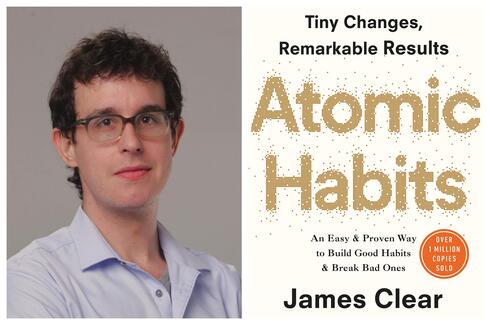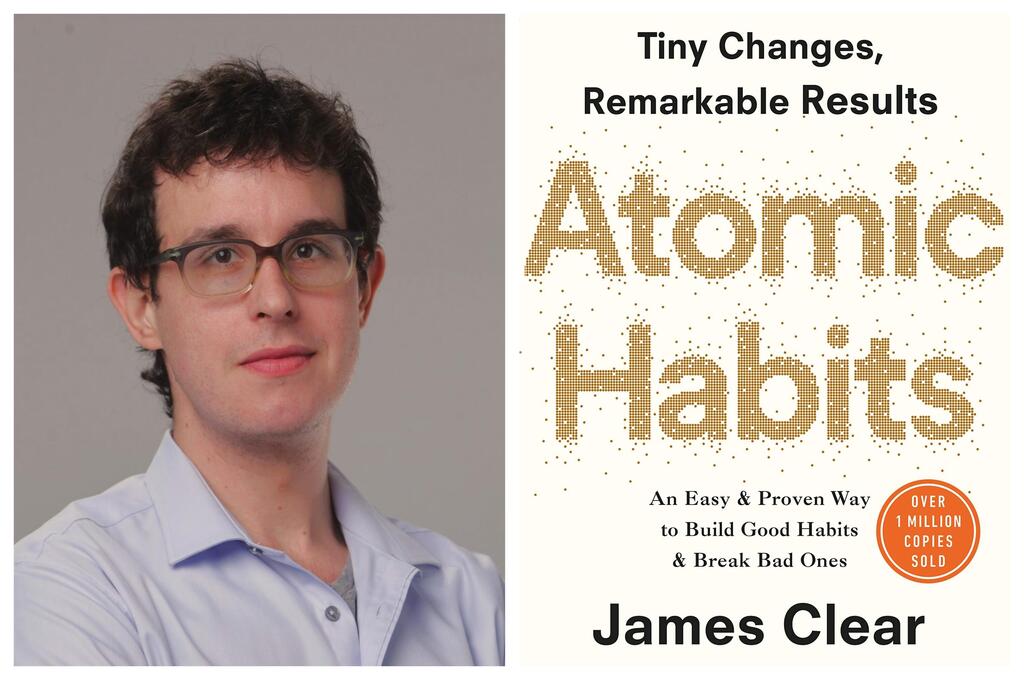
BiblioTech
CTech's Book Review: Making changes today for your future self
James Spiro, Journalist and Editor at CTech, shares insights after reading “Atomic Habits” by James Clear
James Spiro is a journalist and editor at CTech. After running the BlblioTech series for more than a year, he shares his review of “Atomic Habits” by James Clear
Title: “Atomic Habits: An Easy & Proven Way to Build Good Habits & Break Bad Ones”
Author: James Clear
Format: Book
Where: Home/Commute
Summary:
James Clear’s “Atomic Habits” breaks down in simple terms what it means to take control over your life by learning how to master small positive habits and remove negative ones. One of the over-arching ideas in the book is how habits have a compound effect on individuals; if you make a small improvement or investment in yourself each day then it can have long-term benefits for your health, business, or lifestyle. Alternatively, if you allow yourself to form negative habits then it can have the opposite outcome.
Important Themes:
The book is broken down into four main ‘Laws’ that guide the reader on how to create good habits. They are as follows:
- Make it obvious
- Make it attractive
- Make it easy
- Make it satisfying
Clear uses personal experience, broader anecdotes, and academic research to illustrate how people can form strong habits that can benefit their lives in the long term. One of the main areas he discusses is how humans are creatures of ‘now’ and often dismiss the importance of forward-thinking and planning. This, he says, goes back to when we were simple hunters and gathers that would need immediate access to food, shelter, and more.
The book outlines strategies people can adopt to help make small improvements in their daily lives. Some of these include methods such as keeping a ‘Habits Scorecard’ that helps people easily track and review personal behaviors. Another method is to improve your environment by building a strong support network in the form of family or community.
Clear also highlights the inverse of these laws and ends each section with ways readers can break bad habits. These are, logically:
- Make it invisible
- Make it unattractive
- Make it difficult
- Make it unsatisfying
Strategies in this part often included methods such as ‘adding friction’ - obstacles to make it harder to fall into bad habits - and getting what he calls an ‘accountability partner’ to help support you in your new habit.
What I’ve Learned:
One of the examples I personally related to was the concept of turning a habit into an identity, rather than an action. Clear writes how changing the way you see yourself can help make your new habits easily obtainable. I personally used this strategy almost five years ago to help me quit smoking. Instead of telling people “I am quitting smoking” I would say “I am a non-smoker.” By viewing your habit as an identity trait, it can help keep it in place. A similar approach can be taken by saying “I am an athlete” if you want to lose weight at the gym, “I am a leader” if you are promoted at work, or “I am an entrepreneur,” if you are building a startup.
For business leaders, Clear’s book can help them be better listeners, planners, or managers by adopting small habits which can help them grow personally and professionally as their business grows.
Many of the tools and mindsets outlined in “Atomic Habits” reminded me of a famous suggestion by psychologist Dr. Jordan Peterson: Make Your Bed. It may seem small and insignificant, but over time this small action each day can help you gain control, increase productivity, and could lead to more significant changes in the future.
Critiques:
Oftentimes, Clear says something in five sentences when one would do. It sometimes felt that he had a minimum word count he had to meet and that made it feel like a lot of the anecdotes and messages were repeated.
Also, some potential habits, such as “pack your bag the night before you travel”, seemed a bit trivial - but I am naturally a neurotic person so maybe I just never needed such a prompt!
Who Should Read This Book:
Anyone who is seeking a change in their daily habits or who is conscious of their future self. Those who want to get into shape, quit smoking, advance their career, or support their family should read this book to enforce the importance of how small daily actions pay off in the long term.














